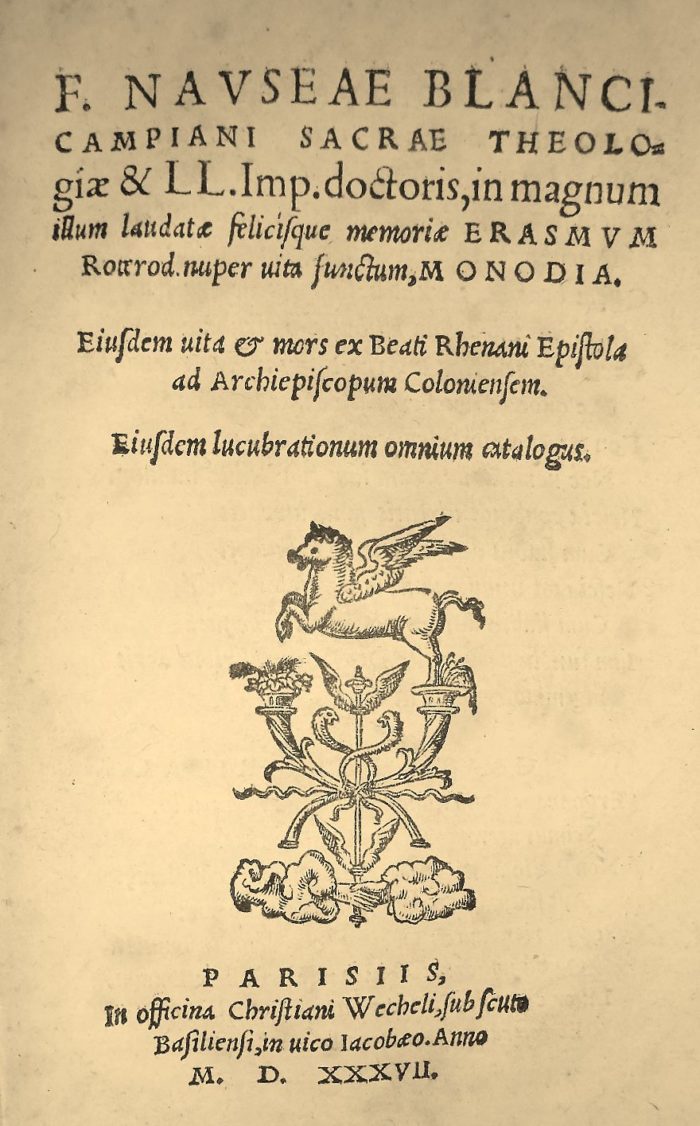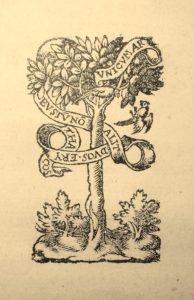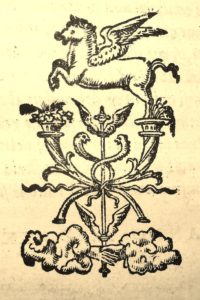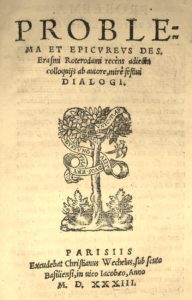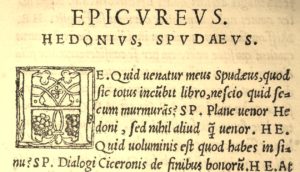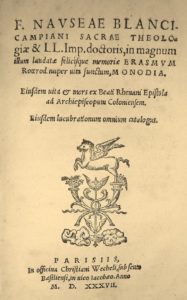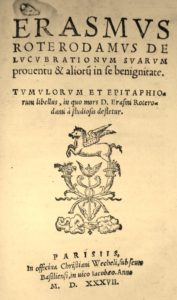[Erasmus]. Dummy collection. ● Erasmus. Problema et Epicureus Des[iderii] Erasmi Roterodami recèns adiecta colloquijs ab autore, mirè festivi Dialogi. Paris, Christian Wechel, 1533. In-8°. 30 pp. Woodcut printer’s device on title page and final leaf verso., ornamental initials. ● Friderich Nausea. F. Nauseæ Blancicampiani sacræ theologiæ & L. L. Imp. doctoris, in magnum illum laudatæ felicisque memoriæ Erasmum roterod. nuper vita functum, Monodia. Ejusdem vita & mors ex Beati Rhenani Epistola ad Archiepiscopum Coloniensem. Ejusdem lucubrationum omnium catalogus. Paris, Christian Wechel, 1537. In-8°. [28] ff. Woodcut printer’s device on title page and final leaf verso., ornamental initials. ● Erasmus. Erasmus Roterodamus de lucubrationum suarum proventu & aliorum in se benignitate. Tumulorum et epitaphiorum libellus, in quo mors D. Erasmi Roterodami à studiosis defletur. Paris, Christian Wechel, 1537. In-8°. [40] pp., woodcut printer’s device on title page and final leaf verso.. Modern Bradel binding in full mute ivory vellum, edges marbled.
Remarkable collection made up at the time of the rare first Parisian editions of Erasmus published in the last years of his life by the humanist printer and bookseller Chrétien Wechel, with one of the first biographies of Erasmus by one of his disciples, Friedrich Nausea.
Problema et Epicureus. First parisian edition of the two latest Colloques, published during the lifetime of Erasmus, following the Basel edition, by Froben, march of the same year. In theEpicureus, the author cites philosophical sects whose opinions seem to him to deviate the least from the truth : Stoics, Aristotelians, and Epicureans, although the latter philosophers were condemned. He then defines a Christian epicureanism and thus rehabilitates Epicure in the footsteps of Lorenzo Valla.
Renouard, Inventaire chronologique des éditions parisiennes du XVIe siècle, IV, 679. See Brenda Dunn-Lardeau, Erasmus, pédagogue du bonheur, in Colloques, Université du Québec Montréal, pp. 106-107.
F. Nausehas. First parisian edition , one of the very first biographies of Erasmus, published a few months after the original of Cologne and the death of Erasmus, by German humanist Friedrich Grau called Nausea (1495-1552). Bishop of Vienna, close to Erasmus, of which he was the correspondent and the unwavering support, Nausea delivers a precious biography of his friend, with a catalogue of his works. Dedicated to Archduke Ferdinand of Austria, this booklet allows us to measure the influence of the Erasmians at the court of Vienna (cf. Bietenholz & Deutscher, Contemporaries of Erasmus, III, p. 7 and 8). José Maria Fonseca de Evora, considering this piece “ extremely rare and little known“, makes it a long comment.
José Maria Fonseca de Evora, Remarques critiques sur le dictionnaire de Bayle. 1752, I, 326 ; Renouard-Moreau, V, 597 ; USTC 182203.
Short cut, removing some marginalia ends, a small, non-serious ink stain.
First parisian edition du Catalogus lucubrationum, excerpts from Erasmus’ letter to Johan Botzheim on January the 30 , 1524 , with a selection of epitaphs.
Adams, I, 692 ; Renouard-Moreau, V, n°495 ; Van der Haeghen, I, 119. Just 3 world Cat copies.
Small spot in the title.
3 copies in a remarkable state of preservation. Extremly rare and valuable.
8 000 €
